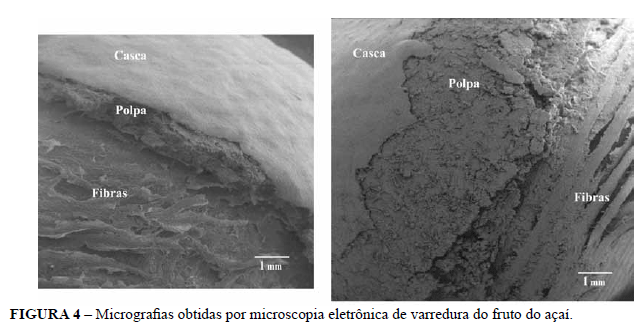The açaí fruit agro industry produces a large amount of waste, mainly seeds and fibers, which is a serious environmental and public health problem. The aim of this work is to study the mesocarp fibers and the açaí fruit seed to use in composite materials. The samples have been characterized by using thermogravimetric analysis (TGA/DTG) in inert and thermo-oxidative atmospheres, scanning electron and optical microscopy. The fibers have shown good stability until 230ºC and a threedegradation step process in inert atmosphere. In oxidative atmosphere, the fibers presented a decrease in thermal stability and a change in the decomposition process from three to four steps. For the seeds, a similar behavior was observed, although a lower thermal stability was observed when compared to the fiber. Longitudinal morphology of the fibers that cover the açaí seed is rough, and parenchyma cells can be seen on the surface. The açaí fibers exhibited a thermal behavior comparable to other natural fibers used in composites, which is promising for new applications.
natural fibers; thermal analysis; morphology







